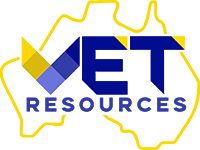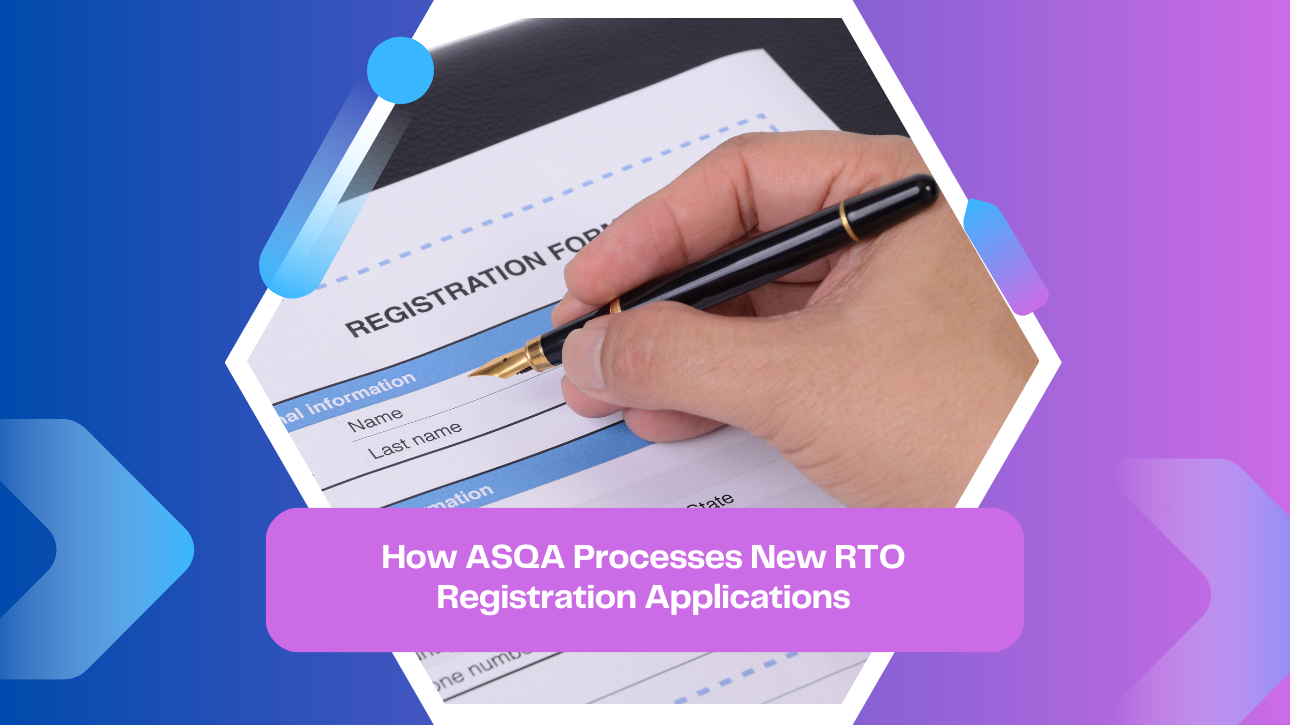Introduction
Are you thinking of starting a Registered Training Organisation (RTO) in Australia? If so, you need to be aware of the RTO registration process and the criteria that ASQA assesses. ASQA completed 7,425 applications in 2021–22, including applications that were received (but not finalised) in the previous financial year. ASQA approved 93% of these applications. The most common reasons for RTO registration rejection are failure to meet the eligibility criteria, incomplete or inaccurate information in the application and non-compliance with the Standards for Registered Training Organisations 2015.
In this blog post, we will explain discuss the RTO registration process in detail. We will also provide some tips for avoiding application rejection.
How ASQA Assesses RTO Registration Applications
The Australian Skills Quality Authority (ASQA) is responsible for the registration and regulation of Registered Training Organisations (RTOs) in Australia. When an RTO applies for registration, ASQA assesses the application against the Standards for Registered Training Organisations 2015.
What is an RTO?
An RTO is an organisation that provides training and assessment services for vocational education and training (VET) qualifications. RTOs must be registered with ASQA in order to offer VET courses.
Why do you need to register with ASQA?
There are several benefits to registering with ASQA. Registered RTOs:
- Are eligible to receive government funding for VET courses
- Are subject to regular audits to ensure they are meeting the standards
- Can provide their students with a statement of attainment that is recognised by employers and other education providers

How ASQA Processes New RTO Registration Applications
This is a topic that is of great interest to many people, as the registration of RTO process can be complex and time-consuming.
In this section, we will walk you through the entire process step-by-step, so that you can have a clear understanding of what to expect. we will also provide some expert tips to help you make the process as smooth as possible.
Step 1: Pay the initial lodgement fee
The first step in the registration process is to pay the initial lodgement fee. This fee is currently $500, and it is payable when you submit your application. (Lodgement fee is non-refundable)
Step 2: ASQA reviews your application
Once you have paid the lodgement fee, ASQA will review your application to ensure that it is complete and that you have provided all of the required information such as financially viable declaration and Fit and Proper person declaration. (If your application is incomplete, ASQA will ask you to complete it and submit it within 5 days.)
Step 3: ASQA sends you an assessment fee invoice
If your application is complete, ASQA will send you an assessment fee invoice. This fee is currently $8,000, and it is payable before ASQA begins the assessment process.
Step 4: ASQA assesses your RTO registration application
The assessment process is where ASQA will evaluate your application to determine whether you meet the requirements for RTO registration. The assessment process is conducted in five steps:
- Assignment of an assessor: ASQA will assign an assessor to your case. The assessor will contact you to discuss the RTO registration assessment process, schedule dates for your opening meeting and interview days, and confirm whether the interview will be conducted in person or via video conferencing.
- Meeting your assigned assessor: Your opening meeting with the assessor is an opportunity for you to learn more about the registration assessment process and ask any questions you may have. The assessor will also provide you with an opportunity to provide more information about your organisation.
- Review of the submitted evidence and an interview: The assessor will review the evidence that you have submitted with your application and may request additional documentation or information. The assessor will also schedule an interview with you, either at your premises or via video conferencing. You may have more than one interview, depending on the scope of your assessment.
During the interview, the assessor will:
Understand how your organisation intends to operate
Clarify the information you have provided in your application
Assess your organisation’s compliance with the VET Quality Framework
(Note: The assessor may also interview your management team and proposed trainers and assessors. The assessor may also visit your premises to observe your facilities and resources.)
- Final closing meeting with assessor: After the assessor has completed their review of your application, they will schedule a closing meeting with you to discuss any issues that were identified. The assessor will then prepare a registration assessment report, which will include any areas where your organisation does not meet the relevant standards and the reasons for their decision.
- Decision on your RTO registration application: If your application is approved, ASQA will issue you a registration certificate, a letter explaining your organisation’s obligations, and details of any special registration conditions that may apply.
When RTO registration application is rejected by ASQA
If your RTO registration application is not approved, ASQA will notify you of the reasons for their decision. Your application may be rejected if:
- It is incomplete or you did not provide the required information and evidence on time or in the correct format
- You did not demonstrate compliance with the VET Quality Framework
- You have not satisfied the financial viability risk assessment requirements
- Your key staff have not satisfied the Fit and Proper Person Requirements
The Timeline for a Decision on RTO registration application
ASQA aims to decide on RTO registration applications within 120 days.
- The initial review of your RTO registration application will take approximately 1-2 weeks after you pay your lodgement fee.
- After you pay the initial assessment fee another 1-2 weeks of time will be taken by ASQA to start the assessment with your assessor
- Assessment with your assessor and the interview will take another 4-6 months
- To receive ASQA’s decision it may take up to a week
Factors affecting your RTO registration application
Here are some factors that may affect the processing time for an RTO registration application
- The completeness of the application: If the application is incomplete, ASQA will need to contact the RTO to request additional information. This can delay the processing time.
- The complexity of the application: If the application is for a complex RTO with a wide range of courses, it may take longer to process than an application for a simpler RTO with a limited range of courses.
- The number of applications received: If ASQA receives many applications at the same time, it may take longer to process all the applications.
Tips for RTOs to Help Them Avoid Application Rejection

- Make sure RTOs meet the eligibility criteria. Before RTO even starts the process, it is important to make sure that RTO meet the eligibility criteria for RTO registration. These criteria are set out in the Standards for Registered Training Organisations 2015.
- Complete the application form carefully. The application form is RTO’s opportunity to demonstrate to ASQA that RTO meets the eligibility criteria, and that RTO is committed to providing high-quality training and assessment. RTO should make sure to complete the form carefully and accurately.
- Provide all of the required information. The application form will ask RTO to provide a lot of information about RTO, including RTO governance arrangements, marketing and recruitment practices, and training and assessment RTO should make sure to provide all the required information.
- Get everything in writing. When RTO is communicating with ASQA, it should make sure to get everything in writing. This will help to avoid any misunderstandings.
- Be patient. The RTO registration process can take some time, so be patient. If you have any questions, do not hesitate to contact ASQA.
- Get professional advice. If RTO is not sure about any aspect of the RTO registration process, it is a good idea to get professional advice from a lawyer or consultant who specialises in VET .
- Start early. The RTO registration process can take some time, so it is a good idea to start early. This will give you plenty of time to gather all the required information and to address any issues that may arise.
- Keep your records up to date. As RTO grows and develops, it is important to keep the records up to date. This will help RTO to demonstrate to ASQA that it is a well-managed and compliant RTO.
Conclusion
If you are considering starting an RTO, it is important to understand the RTO registration process and the criteria that ASQA assesses. By carefully preparing your application, RTO can increase its chances of having the application approved.
Are you an RTO looking to buy RTO training materials then VET Resources is your partner. We also have YouTube channel to help RTOs understand RTO operations and matters related to it. We also offer free consultation to RTOs. For further information you can contact us here.
Frequently Asked Questions (FAQs)
Q1. What are the benefits of registering with ASQA?
The benefits of registering with ASQA include:
- Eligibility to receive government funding for VET courses.
- Subject to regular audits to ensure they are meeting the standards.
- Can provide their students with a statement of attainment that is recognised by employers and other education providers.
Q2. What happens if my application is rejected?
If your application is rejected, you will be given written reasons for the decision. You will have the opportunity to appeal the decision.
How can I renew my RTO registration?
RTO registration must be renewed every three years. To renew your registration, you must complete an application form and pay the renewal fee.
What are the different types of RTO registration?
There are three types of RTO registration:
- Full registration: This allows RTOs to offer all types of VET courses.
- Limited registration: This allows RTOs to offer a limited range of VET courses.
- Provisional registration: This allows RTOs to offer VET courses while RTOs are still meeting the requirements for full registration.
Q3. How much does it cost to start an RTO?
For local RTOs the cost to set up an RTO may vary from $11,000 to $18,000 and CRICOS RTOs may vary from $20,000 to $28,000.
Q4. Do you need to be an RTO to deliver training?
Yes, you have to be an ASQA registered RTO to deliver training in Australia.
Disclaimer:
The information presented on the VET Resources blog is for general guidance only. While we strive for accuracy, we cannot guarantee the completeness or timeliness of the information. VET Resources is not responsible for any errors or omissions, or for the results obtained from the use of this information. Always consult a professional for advice tailored to your circumstances.






